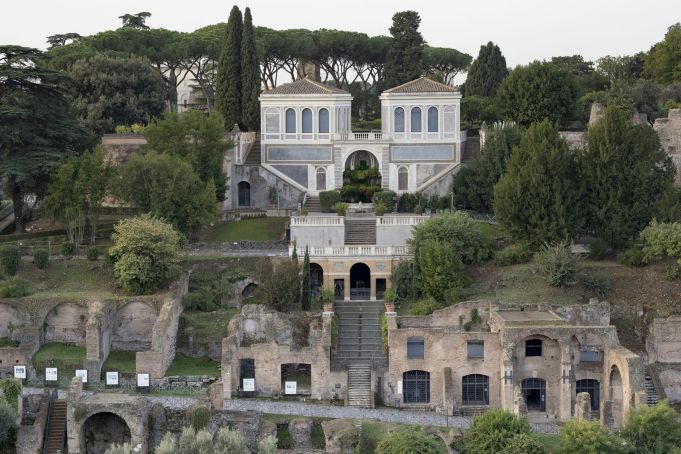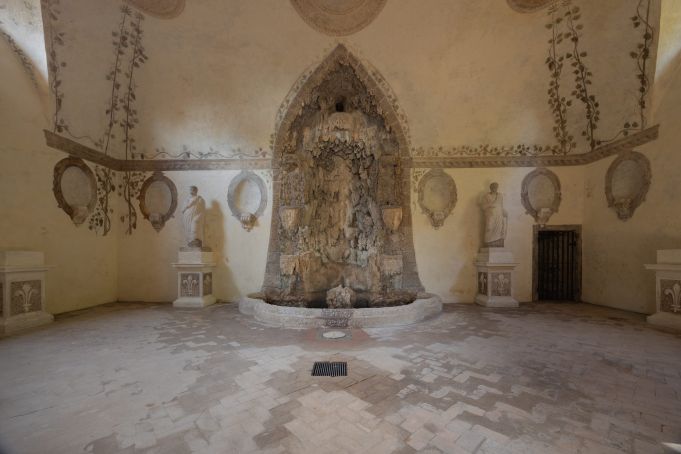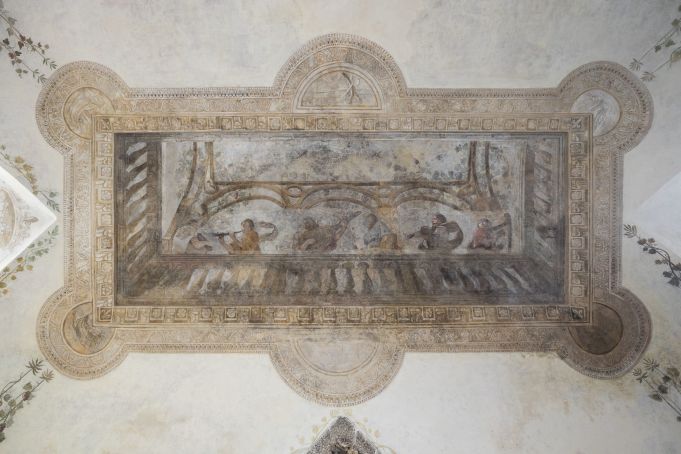Farnese Nymphaeum has been closed for decades.
The Ninfeo della Pioggia or Rain Nymphaeum on Rome's Palatine Hill will reopen to the public on 1 November following extensive restoration works by the Colosseum Archaeological Park.
The nymphaeum is part of the elaborate Farnese Gardens complex, built by the powerful Farnese family in the 16th century, and is located at the centre of the monumental ramp leading up to the Palatine from the Roman Forum.
Decorated with wall paintings and a grotto-style fountain made of stone and stucco, the vaulted structure is one of the most important testimonies of Roman culture from the late Renaissance and Baroque eras.
Closed to the public for many decades for conservation reasons, the cave-like nymphaeum was the subject of a major restoration project that began in 2020 and concluded this year.

Inspired by examples of ancient Rome and the early Renaissance, the ninfeo was used by the Farnese as a refreshing space for festivities and leisure, especially in the hot summer months.
Inside the large semi-subterranean room decorated with frescoes and ancient sculptures, the guests of the nymphaeum could enjoy the dim light and the Fontana della Pioggia, designed to replicate the melodious sounds of rain falling from the sky.
The Farnese family built their "garden of delights" among ancient Roman ruins on the northern slopes of the Palatine Hill in the mid-16th century.
Established by Cardinal Alessandro Farnese, the terraced Horti Farnesiani featured aviaries and magnificent sculptures however by the 18th century the gardens had become completely abandoned and overgrown.
New opening on Rome’s Palatine Hill.
The newly restored Rain Nymphaeum or Ninfeo della Pioggia at the Horti Farnesiani, closed to the public for decades, reopens on 1 November. pic.twitter.com/9KYAe9LTea— Wanted in Rome (@wantedinrome) October 26, 2023
The three-year restoration project at the Ninfeo della Pioggia involved resolving the "complicated problem of water infiltration which affected the walls of the nymphaeum, the consolidation and restoration of the entire structure", stated Alfonsina Russo, director of the Colosseum Archaeological Park.
The Fontana della Pioggia, or Rain Fountain, has been fully restored as have the internal wall surfaces decorated with frescoes and stucco, with new findings attributing the artwork to Baroque artist Modanino.

Stressing the park's commitment to making this "forgotten" monument of Roman Baroque known to everyone, Russo said: “Today we are giving the public back another piece of history of the Palatine and the city."
Ahead of its reopening to the public next week, the Ninfeo della Pioggia can be visited as part of the Festa Barocca which offers an art-based experience that conjures up the rich history of the nymphaeum through music, words, images and sound.

In December the Parco archeologico del Colosseo will host an international conference dedicated to nymphaeums in Rome and Lazio as well as an exhibition devoted to the Horti Farnesiani, running until next April.
The Ninfeo della Pioggia is the latest site on the Palatine Hill to reopen to the public and comes a month after the majestic Domus Tiberiana welcomed visitors for the first time in almost 50 years.
General Info
View on Map
Rome reopens restored Rain Nymphaeum on Palatine Hill
Via di S. Gregorio, 30, 00186 Roma RM, Italy


















